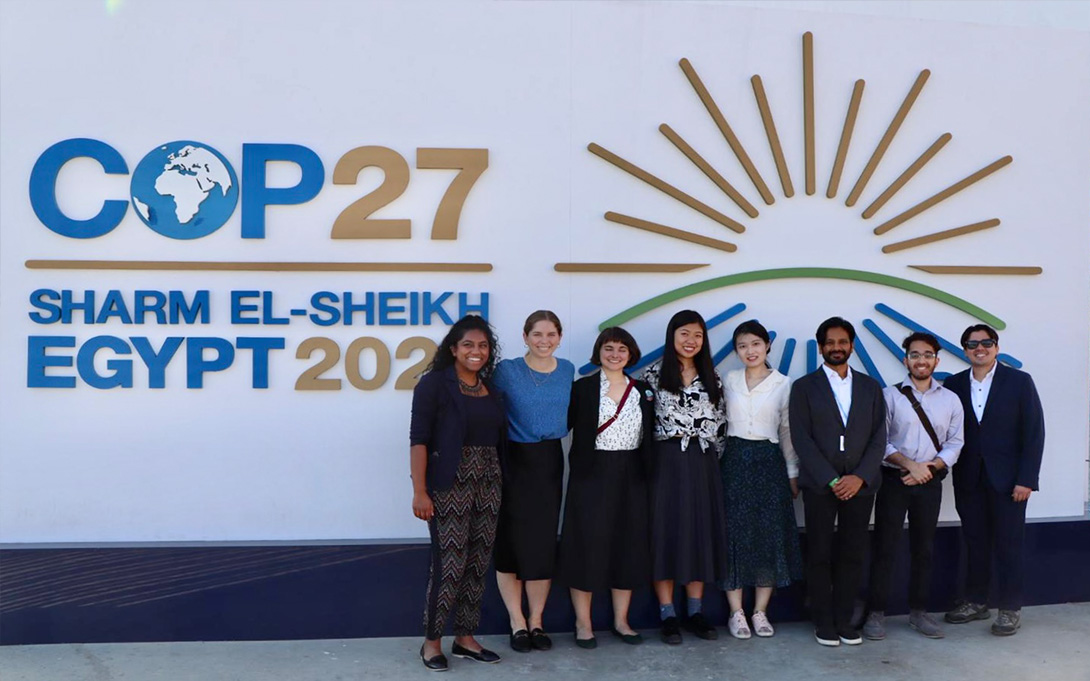
Three Ford School students attended the recent UNFCCC Conference of Parties (COP 27) summit in Sharm el Sheikh, Egypt. The two-week event brought together 112 heads of state and government, and more than 46,000 delegates, including scientists, activists, policymakers, and students. The University of Michigan has had observer status at COP conferences since 2009. Javi Piñeiro (MPP-JD ’24), Anna Kelly (MPP ‘23), and Jared Mandelbaum (MPP-MS SEAS ‘23) joined the U-M delegation, which included students from the School for Environment and Sustainability, Ross School of Business, Taubman College of Architecture and Urban Planning, and College of Engineering.
For Piñeiro, pursuing dual degrees in law and public policy, the goals of the conference were especially relevant. “I am interested in topics that were at the center of this conference, such as the geopolitical dynamics of climate financing, the role of policy in climate change mitigation and adaptation, and the just transition to clean energy in developing countries.”
He observed “how Latin American countries and Island States navigated climate negotiations and achieved important commitments from the ‘global north,’” including establishing a fund for loss and damage caused by climate change for vulnerable communities.
Kelly was able to attend sessions with White House National Climate Advisor, Ali Zaidi, with the head of the Global Covenant of Mayors for City Climate Leadership, and other high-level meetings about climate finance.
“Through this opportunity, I was able to understand a broader set of perspectives on global climate adaptation and mitigation. Watching the high-level negotiations, I also developed a deeper understanding of how officials navigate high stakes, consensus-based negotiations in the climate space,” she says.
Mandelbaum focused on climate justice, power dynamics in negotiations, climate adaptation, and loss and damage. “I engrossed myself in these topics by attending sessions where I learned about the mechanics of policies and legislation under the UNFCCC, observed conversations about the specific policy ideas behind adaptation and loss and damage efforts, and listened to perspectives from practitioners from developing countries and members of frontline communities.”
After spending time in policy consultations and negotiations, he attended more side events, “which were usually panels of individuals doing essential ground-level environmental work or those who are directly facing the effects of climate change in their communities. It is rare in my daily life to have the opportunity to consistently hear from people in these positions and contexts.”
He plans to focus more heavily in the short term on exploring power dynamics in policy and negotiations and on amplifying marginalized voices, both at the local and international level. “In the long-term, I plan to maintain this focus on power dynamics and amplification of marginalized voices, but I aim to meaningfully incorporate these focuses as central tenets in my daily work,” he says.
